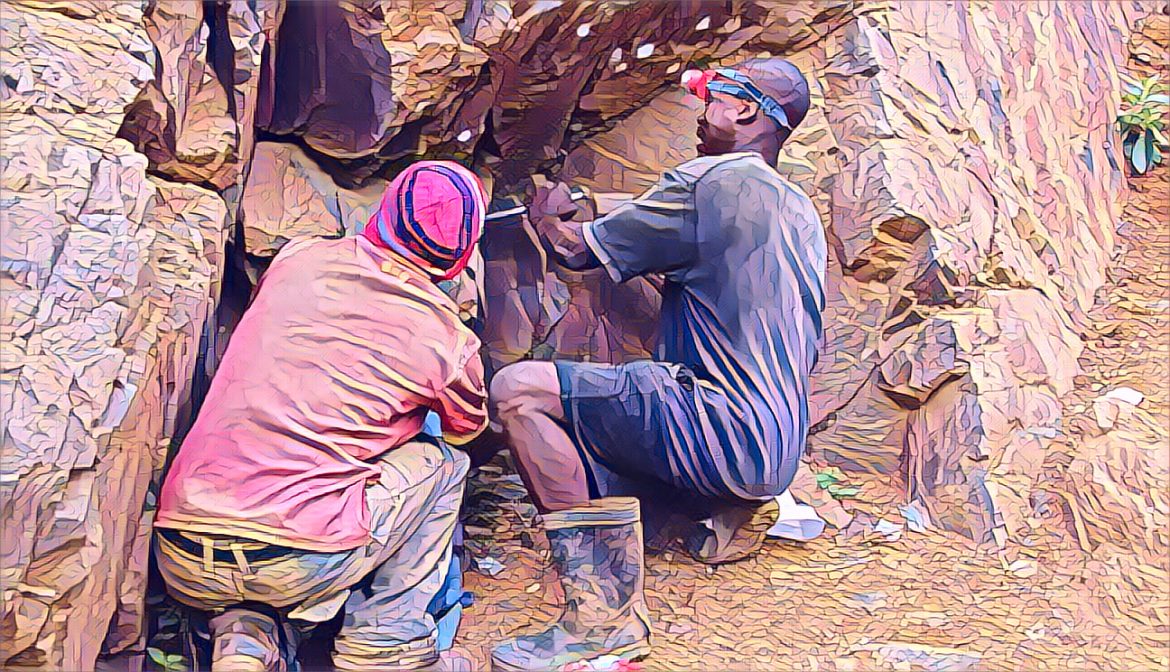KEY POINTS
- Small-scale miners oppose an outright ban on mining activities.
- They propose a stakeholder roundtable for sustainable solutions to the galamsey crisis.
- The government plans measures to support small-scale mining while protecting the environment.
Small-scale miners in Ghana are pushing back against recent calls for an outright ban on their activities in response to growing concerns about illegal mining, known locally as “galamsey.” Instead, they are urging a roundtable discussion with stakeholders to find a sustainable solution to the environmental challenges facing the country.
Miners push for dialogue
Daniel Nyame, Eastern Regional Coordinator for Small-Scale Miners, voiced his concerns, stating that a complete ban would only lead to social unrest. “A total ban is a recipe for chaos. Where will these small-scale miners find their daily bread?” he asked during an interview. He argued that the sector’s contribution to Ghana’s economy is too significant to ignore, suggesting that banning small-scale mining could further weaken the value of the cedi.
Suleman Koney, Chief Executive of the Ghana Chamber of Mines, also supported this view, emphasizing that the small-scale mining sector plays a crucial role in maintaining the stability of the cedi. Without the sector, he argued, the cedi could have depreciated to GH¢25 against the dollar.
The sector directly employs more than one million Ghanaians and indirectly supports an additional five million people. In contrast, large-scale mining operations employ significantly fewer workers, highlighting the importance of small-scale mining as a source of livelihoods across the country.
Need for sustainable solutions
Godwin Armah, General Secretary of the Ghana National Small-Scale Miners Association, reiterated that a military approach to fighting illegal mining, previously implemented by successive governments, has not been effective. “Fighting galamsey with the military is not sustainable. We need a holistic and multifaceted approach to end the menace,” Armah said. He pointed out that bans and enforcement measures have repeatedly failed to achieve lasting results, and a more inclusive solution is needed.
The Ghana Water Company Limited reported that more than 60% of the country’s water bodies are contaminated due to illegal mining activities. According to Graphic Online, issues of deforestation and land degradation have also worsened, necessitating a collaborative approach to restore the environment.
The government has ruled out an outright ban on small-scale mining and instead plans to implement a range of measures to support the sector while addressing environmental challenges. Among the initiatives are the establishment of the Minerals Development Bank, setting up common-user gold processing units in key mining districts, reducing export tax on small-scale gold exports, and decentralizing the Minerals Commission and Environmental Protection Agency (EPA).
In addition, the government intends to involve traditional authorities and local assemblies in administering mineral rights, tackle illegal mining activities, and resource the Precious Minerals Marketing Company (PMMC) to curb gold smuggling. It also plans to introduce “River Guards” to protect water bodies from illegal mining.
Proposed initiatives for progress
The small-scale miners have also put forward their own proposals. These include restricting imports of changfan machines, empowering community task forces, decentralizing EPA operations to district levels, and increasing the visibility of those arrested for illegal mining.
They also proposed land reclamation activities, a peer-to-peer review mechanism, and scaling up the use of technology in mining.
The miners believe that a roundtable discussion is necessary for evaluating these proposals and implementing effective solutions to the galamsey crisis. Such a dialogue, they argue, would help align all stakeholders towards a common goal of sustainable mining practices that protect the environment while supporting local livelihoods.




